- Home
- Wilkie Collins
The Legacy of Cain Page 30
The Legacy of Cain Read online
Page 30
Gossip; relating strange adventures, and scandalous incidents in family history
which had been concealed from public notice.
One of these last romances in real life caught a strong hold on my interest.
It was a strange case of intended poisoning, which had never been carried out. A
young married lady of rank, whose name was concealed under an initial letter,
had suffered some unendurable wrong (which was not mentioned) at the hands of
her husband's mother. The wife was described as a woman of strong passions, who
had determined on a terrible revenge by taking the life of her mother-in-law.
There were difficulties in the way of her committing the crime without an
accomplice to help her; and she decided on taking her maid, an elderly woman,
into her confidence. The poison was secretly obtained by this person; and the
safest manner of administering it was under discussion between the mistress and
the maid, when the door of the room was suddenly opened. The husband,
accompanied by his brother, rushed in, and charged his wife with plotting the
murder of his mother. The young lady (she was only twenty-three) must have been
a person of extraordinary courage and resolution. She saw at once that her maid
had betrayed her, and, with astonishing presence of mind, she turned on the
traitress, and said to her husband: "There is the wretch who has been trying to
persuade me to poison your mother!" As it happened, the old lady's temper was
violent and overbearing; and the maid had complained of being ill-treated by
her, in the hearing of the other servants. The circumstances made it impossible
to decide which of the two was really the guilty woman. The servant was sent
away, and the husband and wife separated soon afterward, under the excuse of
incompatibility of temper. Years passed; and the truth was only discovered by
the death-bed confession of the wife. A remarkable story, which has made such an
impression on me that I have written it in my Journal. I am not rich enough to
buy the book.
For the last two days, I have been confined to my room with a bad feverish
cold--caught, as I suppose, by sitting at an open window reading my book till
nearly three o'clock in the morning. I sent a note to Philip, telling him of my
illness. On the first day, he called to inquire after me. On the second day, no
visit, and no letter. Here is the third day--and no news of him as yet. I am
better, but not fit to go out. Let me wait another hour, and, if that exertion
of patience meets with no reward, I shall send a note to the hotel.
No news of Philip. I have sent to the hotel. The servant has just returned,
bringing me back my note. The waiter informed her that Mr. Dunboyne had gone
away to London by the morning train. No apology or explanation left for me.
Can he have deserted me? I am in such a frenzy of doubt and rage that I can
hardly write that horrible question. Is it possible--oh, I feel it is possible
that he has gone away with Eunice. Do I know where to find them? if I did know,
what could I do? I feel as if I could kill them both!
CHAPTER LIII.
HELENA'S DIARY RESUMED.
AFTER the heat of my anger had cooled, I made two discoveries. One cost me a fee
to a messenger, and the other exposed me to the insolence of a servant. I pay
willingly in my purse and my pride, when the gain is peace of mind. Through my
messenger I ascertained that Eunice had never left the farm. Through my own
inquiries, answered by the waiter with an impudent grin, I heard that Philip had
left orders to have his room kept for him. What misery our stupid housemaid
might have spared me, if she had thought of putting that question when I sent
her to the hotel!
The rest of the day passed in vain speculations on Philip's motive for this
sudden departure. What poor weak creatures we are! I persuaded myself to hope
that anxiety for our marriage had urged him to make an effort to touch the heart
of his mean father. Shall I see him to-morrow? And shall I have reason to be
fonder of him than ever?
We met again to-day as usual. He has behaved infamously.
When I asked what had been his object in going to London, I was told that it was
"a matter of business." He made that idiotic excuse as coolly as if he really
thought I should believe it. I submitted in silence, rather than mar his return
to me by the disaster of a quarrel. But this was an unlucky day. A harder trial
of my self-control was still to come. Without the slightest appearance of shame,
Philip informed me that he was charged with a message from Mrs. Tenbruggen! She
wanted some Irish lace, and would I be so good as to tell her which was the best
shop at which she could buy it?
Was he really in earnest? "You," I said, "who distrusted and detested her--you
are on friendly terms with that woman?"
He remonstrated with me. "My dear Helena, don't speak in that way of Mrs.
Tenbruggen. We have both been mistaken about her. That good creature has
forgiven the brutal manner in which I spoke to her, when she was in attendance
on my father. She was the first to propose that we should shake hands and forget
it. My darling, don't let all the good feeling be on one side. You have no idea
how kindly she speaks of you, and how anxious she is to help us to be married.
Come! come! meet her half-way. Write down the name of the shop on my card, and I
will take it back to her."
Sheer amazement kept me silent: I let him go on. He was a mere child in the
hands of Mrs. Tenbruggen: she had only to determine to make a fool of him, and
she could do it.
But why did she do it? What advantage had she to gain by insinuating herself in
this way into his good opinion, evidently with the intention of urging him to
reconcile us to each other? How could we two poor young people be of the
smallest use to the fashionable Masseuse?
My silence began to irritate Philip. "I never knew before how obstinate you
could be," he said; "you seem to be doing your best--I can't imagine why--to
lower yourself in my estimation."
I held my tongue; I assumed my smile. It is all very well for men to talk about
the deceitfulness of women. What chance (I should like to ask somebody who knows
about it) do the men give us of making our lives with them endurable, except by
deceit! I gave way, of course, and wrote down the address of the shop.
He was so pleased that he kissed me. Yes! the most fondly affectionate kiss that
he had given me, for weeks past, was my reward for submitting to Mrs.
Tenbruggen. She is old enough to be his mother, and almost as ugly as Miss
Jillgall--and she has made her interests his interests already!
On the next day, I fully expected to receive a visit from Mrs. Tenbruggen. She
knew better than that. I only got a polite little note, thanking me for the
address, and adding an artless concession: "I earn more money than I know what
to do with; and I adore Irish lace."
The next day came, and still she was careful not to show herself too eager for a
personal reconciliation. A splendid nosegay was sent to me, with another little
not
e: "A tribute, dear Helena, offered by one of my grateful patients. Too
beautiful a present for an old woman like me. I agree with the poet: 'Sweets to
the sweet.' A charming thought of Shakespeare's, is it not? I should like to
verify the quotation. Would you mind leaving the volume for me in the hall, if I
call to-morrow?"
Well done, Mrs. Tenbruggen! She doesn't venture to intrude on Miss Gracedieu in
the drawing-room; she only wants to verify a quotation in the hall. Oh, goddess
of Humility (if there is such a person), how becomingly you are dressed when
your milliner is an artful old woman!
While this reflection was passing through my mind, Miss Jillgall came in--saw
the nosegay on the table--and instantly pounced on it. "Oh, for me! for me!" she
cried. "I noticed it this morning on Elizabeth's table. How very kind of her!"
She plunged her inquisitive nose into the poor flowers, and looked up
sentimentally at the ceiling. "The perfume of goodness," she remarked, "mingled
with the perfume of flowers!" "When you have quite done with it," I said,
"perhaps you will be so good as to return my nosegay?" "Your nosegay!" she
exclaimed. "There is Mrs. Tenbruggen's letter," I replied, "if you would like to
look at it." She did look at it. All the bile in her body flew up into her eyes,
and turned them green; she looked as if she longed to scratch my face. I gave
the flowers afterward to Maria; Miss Jillgall's nose had completely spoiled
them.
It would have been too ridiculous to have allowed Mrs. Tenbruggen to consult
Shakespeare in the hall. I had the honor of receiving her in my own room. We
accomplished a touching reconciliation, and we quite forgot Shakespeare.
She troubles me; she does indeed trouble me.
Having set herself entirely right with Philip, she is determined on performing
the same miracle with me. Her reform of herself is already complete. Her vulgar
humor was kept under strict restraint; she was quiet and well-bred, and readier
to listen than to talk. This change was not presented abruptly. She contrived to
express her friendly interests in Philip and in me by hints dropped here and
there, assisted in their effort by answers on my part, into which I was tempted
so skillfully that I only discovered the snare set for me, on reflection. What
is it, I ask again, that she has in view in taking all this trouble? Where is
her motive for encouraging a love-affair, which Miss Jillgall must have
denounced to her as an abominable wrong inflicted on Eunice? Money (even if
there was a prospect of such a thing, in our case) cannot be her object; it is
quite true that her success sets her above pecuniary anxiety. Spiteful feeling
against Eunice is out of the question. They have only met once; and her opinion
was expressed to me with evident sincerity: "Your sister is a nice girl, but she
is like other nice girls--she doesn't interest me." There is Eunice's character,
drawn from the life in few words. In what an irritating position do I find
myself placed! Never before have I felt so interested in trying to look into a
person's secret mind; and never before have I been so completely baffled.
I had written as far as this, and was on the point of closing my Journal, when a
third note arrived from Mrs. Tenbruggen.
She had been thinking about me at intervals (she wrote) all through the rest of
the day; and, kindly as I had received her, she was conscious of being the
object of doubts on my part which her visit had failed to remove. Might she ask
leave to call on me, in the hope of improving her position in my estimation? An
appointment followed for the next day.
What can she have to say to me which she has not already said? Is it anything
about Philip, I wonder?
CHAPTER LIV.
HELENA'S DIARY RESUMED.
AT our interview of the next day, Mrs. Tenbruggen's capacity for self-reform
appeared under a new aspect. She dropped all familiarity with me, and she stated
the object of her visit without a superfluous word of explanation or apology.
I thought this a remarkable effort for a woman; and I recognized the merit of it
by leaving the lion's share of the talk to my visitor. In these terms she opened
her business with me:
"Has Mr. Philip Dunboyne told you why he went to London?"
"He made a commonplace excuse," I answered. "Business, he said, took him to
London. I know no more."
"You have a fair prospect of happiness, Miss Helena, when you are married--your
future husband is evidently afraid of you. I am not afraid of you; and I shall
confide to your private ear something which you have an interest in knowing. The
business which took young Mr. Dunboyne to London was to consult a competent
person, on a matter concerning himself. The competent person is the sagacious
(not to say sly) old gentleman--whom we used to call the Governor. You know him,
I believe?"
"Yes. But I am at a loss to imagine why Philip should have consulted him."
"Have you ever heard or read, Miss Helena, of such a thing as 'an old man's
fancy'?"
"I think I have."
"Well, the Governor has taken an old man's fancy to your sister. They appeared
to understand each other perfectly when I was at the farmhouse."
"Excuse me, Mrs. Tenbruggen, that is what I know already. Why did Philip go to
the Governor?"
She smiled. "If anybody is acquainted with the true state of your sister's
feelings, the Governor is the man. I sent Mr. Dunboyne to consult him--and there
is the reason for it."
This open avowal of her motives perplexed and offended me. After declaring
herself to be interested in my marriage-engagement had she changed her mind, and
resolved on favoring Philip's return to Eunice? What right had he to consult
anybody about the state of that girl's feelings? My feelings form the only
subject of inquiry that was properly open to him. I should have said something
which I might have afterward regretted, if Mrs. Tenbruggen had allowed me the
opportunity. Fortunately for both of us, she went on with her narrative of her
own proceedings.
"Philip Dunboyne is an excellent fellow," she continued; "I really like him--but
he has his faults. He sadly wants strength of purpose; and, like weak men in
general, he only knows his own mind when a resolute friend takes him in hand and
guides him. I am his resolute friend. I saw him veering about between you and
Eunice; and I decided for his sake--may I say for your sake also?--on putting an
end to that mischievous state of indecision. You have the claim on him; you are
the right wife for him, and the Governor was (as I thought likely from what I
had myself observed) the man to make him see it. I am not in anybody's secrets;
it was pure guesswork on my part, and it has succeeded. There is no more doubt
now about Miss Eunice's sentiments. The question is settled."
"In my favor?"
"Certainly in your favor--or I should not have said a word about it."
"Was Philip's visit kindly received? Or did the old wretch laugh at him?"
"My dear Miss Gracedieu, the old wretch is a
man of the world, and never makes
mistakes of that sort. Before he could open his lips, he had to satisfy himself
that your lover deserved to be taken into his confidence, on the delicate
subject of Eunice's sentiments. He arrived at a favorable conclusion. I can
repeat Philip's questions and the Governor's answers after putting the young man
through a stiff examination just as they passed: 'May I inquire, sir, if she has
spoken to you about me?' 'She has often spoken about you.' 'Did she seem to be
angry with me?' 'She is too good and too sweet to be angry with you.' 'Do you
think she will forgive me?' 'She has forgiven you.' 'Did she say so herself?'
'Yes, of her own free will.' 'Why did she refuse to see me when I called at the
farm?' 'She had her own reasons--good reasons.' 'Has she regretted it since?'
'Certainly not.' 'Is it likely that she would consent, if I proposed a
reconciliation?' 'I put that question to her myself.' 'How did she take it,
sir?' 'She declined to take it.' 'You mean that she declined a reconciliation?'
'Yes.' 'Are you sure she was in earnest?' 'I am positively sure.' That last
answer seems, by young Dunboyne's own confession, to have been enough, and more
than enough for him. He got up to go--and then an odd thing happened. After
giving him the most unfavorable answers, the Governor patted him paternally on
the shoulder, and encouraged him to hope. 'Before we say good-by, Mr. Philip,
one word more. If I was as young as you are, I should not despair.' There is a
sudden change of front! Who can explain it?"
The Governor's mischievous resolution to reconcile Philip and Eunice explained
it, of course. With the best intentions (perhaps) Mrs. Tenbruggen had helped
that design by bringing the two men together. "Go on," I said; "I am prepared to
hear next that Philip has paid another visit to my sister, and has been received
this time."
I must say this for Mrs. Tenbruggen: she kept her temper perfectly.
"He has not been to the farm," she said, "but he has done something nearly as
foolish. He has written to your sister."
"And he has received a favorable reply, of course?"
She put her hand into the pocket of her dress.
"There is your sister's reply," she said.
Any persons who have had a crushing burden lifted, unexpectedly and instantly,
from off their minds, will know what I felt when I read the reply. In the most
positive language, Eunice refused to correspond with Philip, or to speak with
him. The concluding words proved that she was in earnest. "You are engaged to
Helena. Consider me as a stranger until you are married. After that time you
will be my brother-in-law, and then I may pardon you for writing to me."
Nobody who knows Eunice would have supposed that she possessed those two
valuable qualities--common-sense and proper pride. It is pleasant to feel that I
can now send cards to my sister, when I am Mrs. Philip Dunboyne.
I returned the letter to Mrs. Tenbruggen, with the sincerest expressions of
regret for having doubted her. "I have been unworthy of your generous interest
in me," I said; "I am almost ashamed to offer you my hand."
She took my hand, and gave it a good, heady shake.
"Are we friends?" she asked, in the simplest and prettiest manner. "Then let us
be easy and pleasant again," she went on. "Will you call me Elizabeth; and shall
I call you Helena? Very well. Now I have got something else to say; another
secret which must be kept from Philip (I call him by his name now, you see) for
a few days more. Your happiness, my dear, must not depend on his miserly old
father. He must have a little income of his own to marry on. Among the hundreds
of unfortunate wretches whom I have relieved from torture of mind and body,
there is a grateful minority. Small! small! but there they are. I have influence
among powerful people; and I am trying to make Philip private secretary to a

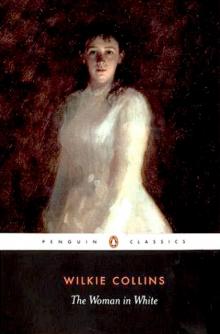 The Woman in White
The Woman in White The Queen of Hearts
The Queen of Hearts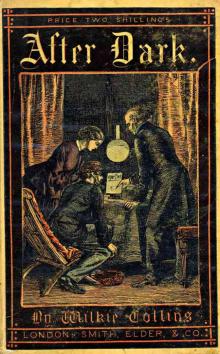 Miss Jeromette and the Clergyman
Miss Jeromette and the Clergyman Man and Wife
Man and Wife The Legacy of Cain
The Legacy of Cain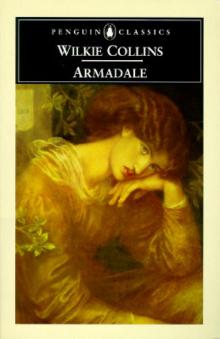 Armadale
Armadale The Frozen Deep
The Frozen Deep John Jago's Ghost or the Dead Alive
John Jago's Ghost or the Dead Alive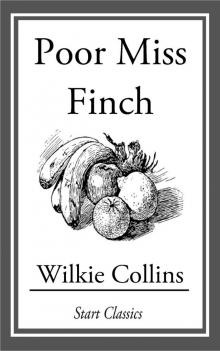 Poor Miss Finch
Poor Miss Finch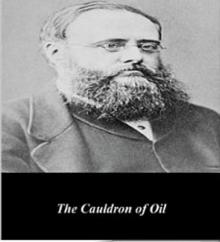 The Cauldron of Oil: A Case Worth Looking At
The Cauldron of Oil: A Case Worth Looking At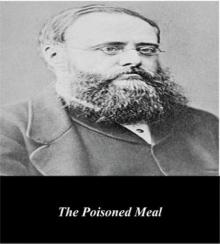 The Poisoned Meal
The Poisoned Meal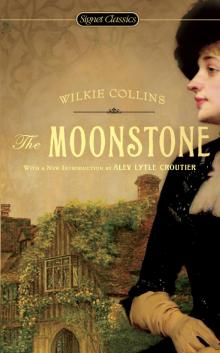 The Moonstone
The Moonstone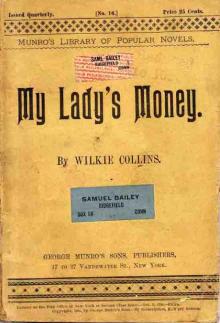 My Lady's Money
My Lady's Money Classic Ghost Stories
Classic Ghost Stories Jezebel's Daughter
Jezebel's Daughter The Devil's Spectacles
The Devil's Spectacles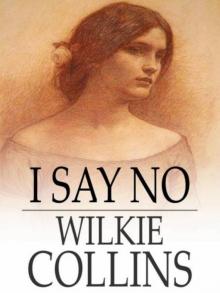 I Say No
I Say No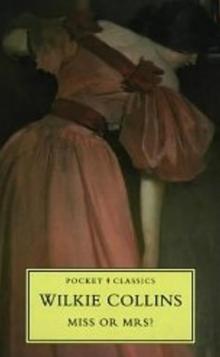 Miss or Mrs.?
Miss or Mrs.?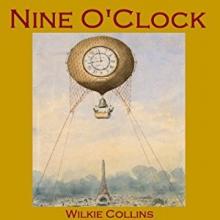 Nine O'Clock
Nine O'Clock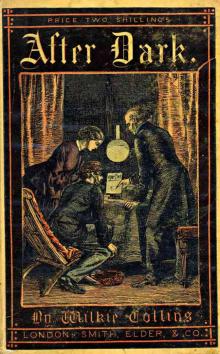 The Lawyer's Story of a Stolen Letter
The Lawyer's Story of a Stolen Letter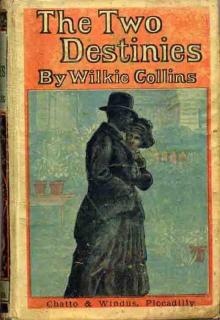 The Two Destinies
The Two Destinies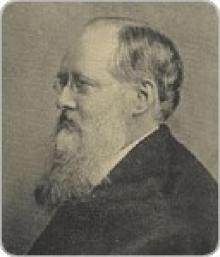 Mr. Percy and the Prophet
Mr. Percy and the Prophet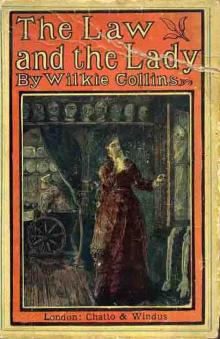 The Law and the Lady
The Law and the Lady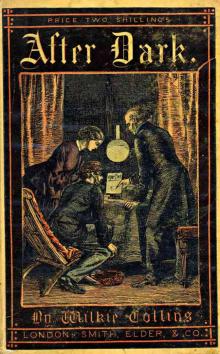 The Nun's Story of Gabriel's Marriage
The Nun's Story of Gabriel's Marriage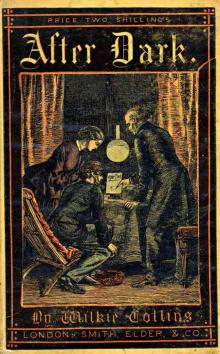 After Dark
After Dark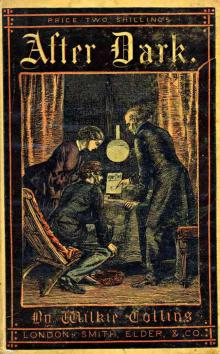 Mr. Captain and the Nymph
Mr. Captain and the Nymph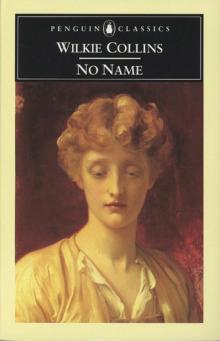 No Name
No Name The Moonstone (Penguin Classics)
The Moonstone (Penguin Classics) Antonina
Antonina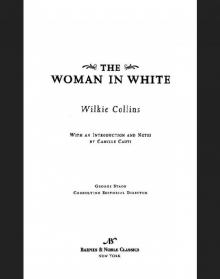 Woman in White (Barnes & Noble Classics Series)
Woman in White (Barnes & Noble Classics Series)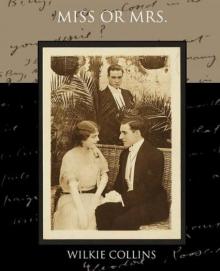 Miss or Mrs
Miss or Mrs The Dead Alive
The Dead Alive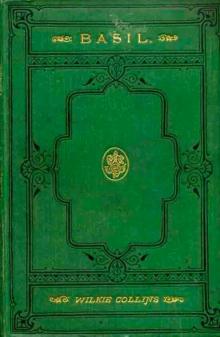 Basil
Basil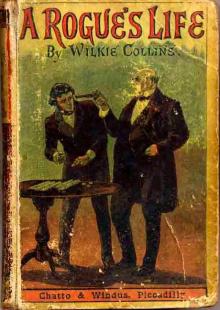 A Rogue's Life
A Rogue's Life The New Magdalen
The New Magdalen Blind Love
Blind Love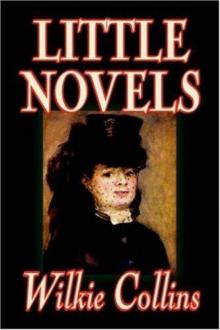 Little Novels
Little Novels The Lazy Tour of Two Idle Apprentices
The Lazy Tour of Two Idle Apprentices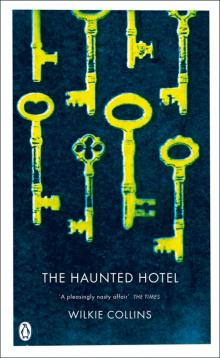 The Haunted Hotel
The Haunted Hotel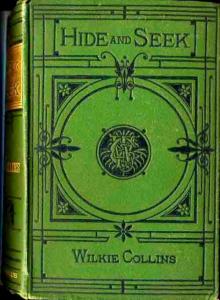 Hide and Seek
Hide and Seek